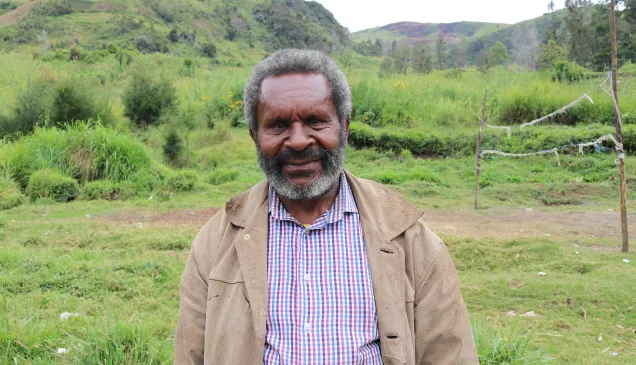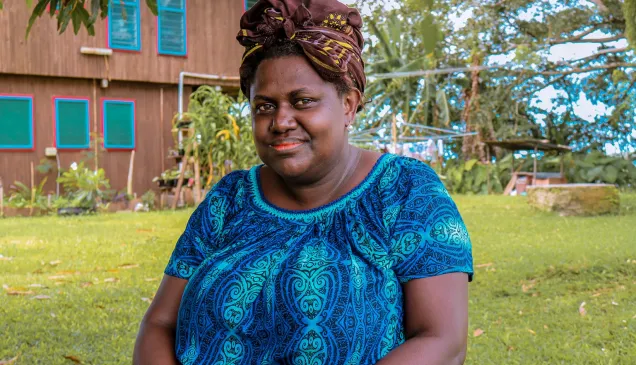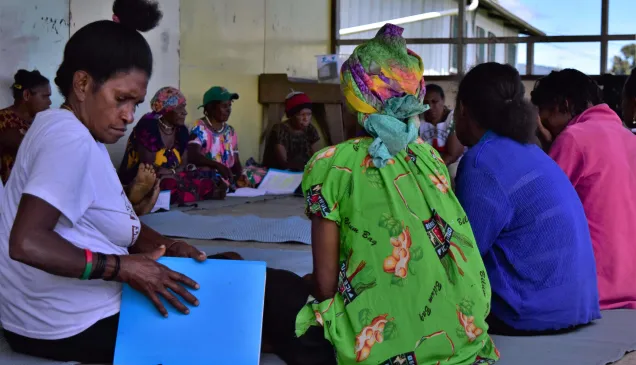Encouraging perpetrators of rape to change their behaviour is no easy feat, but it’s something Papua New Guinean nurse Rose Aret is determined to achieve.
Rose works with the ICRC in the remote Highlands of Papua New Guinea and is passionate about educating communities on the effects of sexual violence, a challenging endeavour in areas where rape is often committed with impunity. “When I’m sharing information, generally some of the men will laugh,” says Rose. “They don’t understand the consequences of their actions.” Rose was raised in a village embroiled in a vicious war with a neighbouring tribe, where women from both sides of the conflict were sexually assaulted. This gave her the resolve to challenge traditional attitudes towards violence against women. “In my culture, women are not supposed to speak out, so it takes courage to talk to men about things like sexual violence. I take any opportunity I can to talk about it – in the bus, in church, visiting communities.”
Lives lost, futures destroyed: Stories from Papua New Guinea’s tribal wars
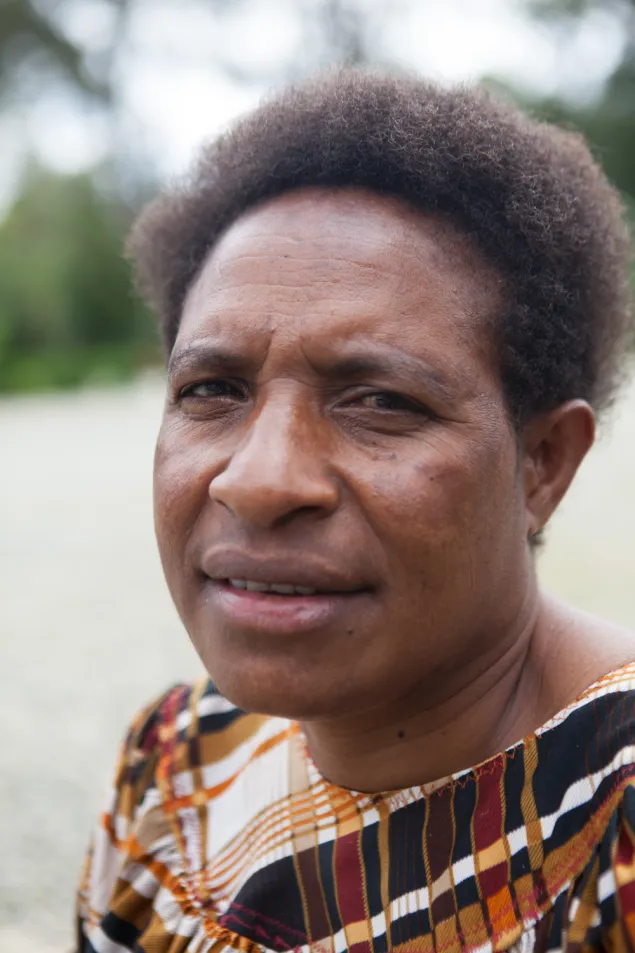
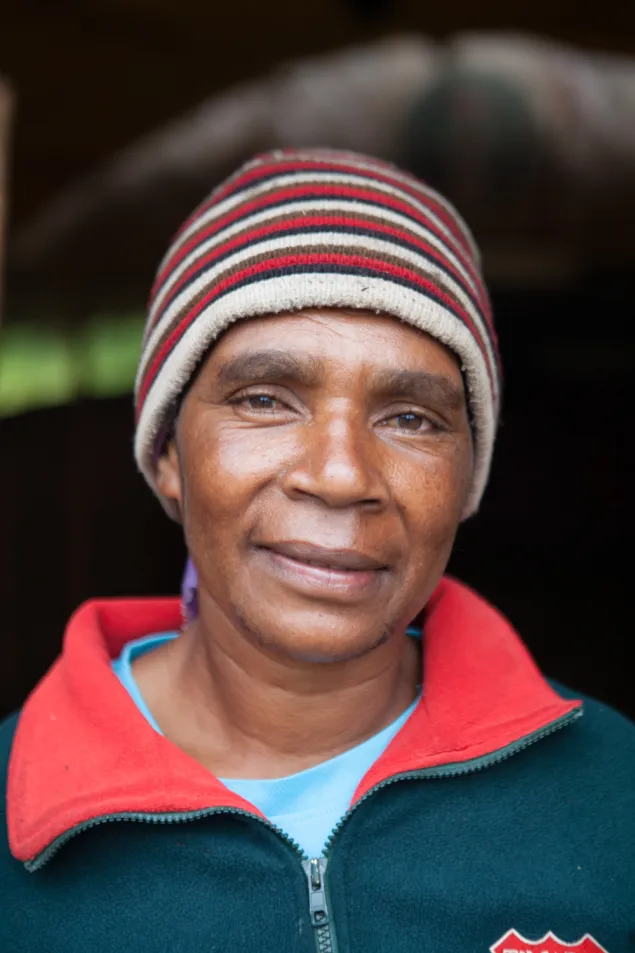
Mother of two and a missionary, Rowena, resides in Katiloma, Southern Highlands Province. Her community has been involved in a long-running tribal conflict with a neighbouring clan, which has seen the use of brutal tactics including sexual violence and the targeting of children. "When the fighting first erupted, I was at my gate, I saw fighters from both sides throwing knives, bows and arrows, and I heard gunfire. We sheltered in the church. We were so frightened, after seeing all the harm from the fighting, that we left our homes and fled to the mountains. We lived there for a few days without food, underneath a big tree. When we came back, lots of homes and belongings had been destroyed. The church was one of the few buildings still standing. We don’t feel safe yet; there is no peace agreement signed. The battle is still on. It’s a difficult situation because lots of people were killed on the other side and several were injured. I don’t think peace will come quickly. But I am praying to God for peace."
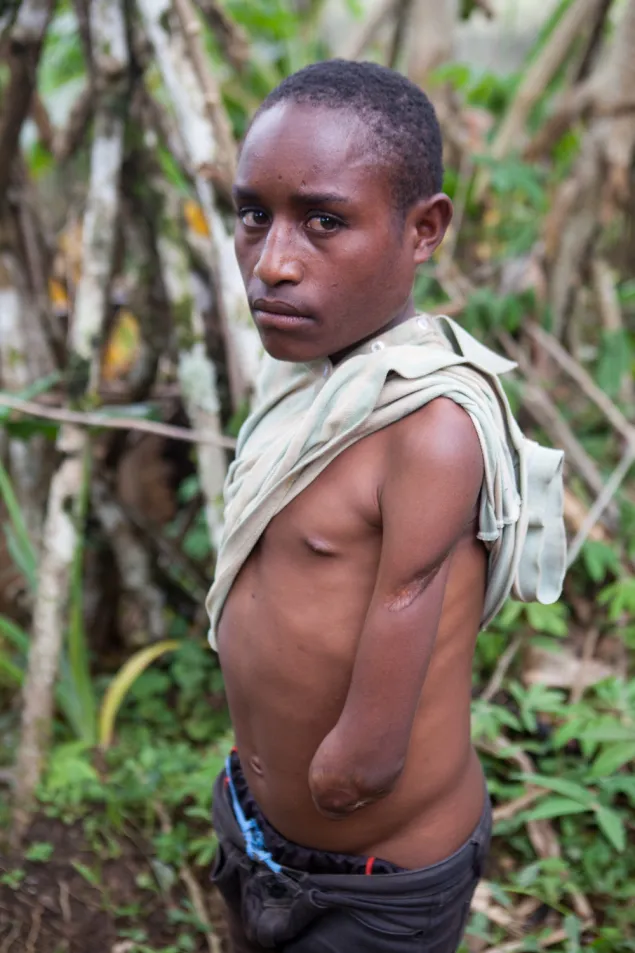
Robert Lepo, 11, is from the Wambia tribe in Southern Highlands Province. Robert was brutally attacked by a neighbouring clan during a violent tribal dispute that saw his village decimated. At the height of the conflict, a grenade was reportedly thrown into a large house where he was sheltering with hundreds of community members. Robert managed to escape the inferno, but was attacked by machete-wielding enemy combatants while trying to flee the fight. “We were kids inside a big house in the village, and it was bombed. I was hiding and escaped through a hole in the house and tried to run away, but the enemy found me and chopped me with a bush knife. My life before the fight was ok, but now my life is in question.”
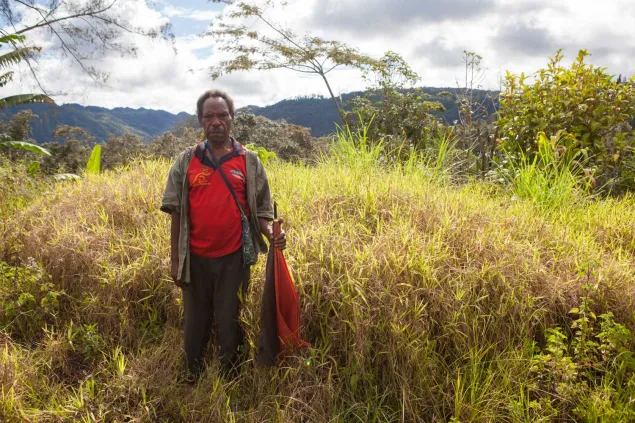
Ben Ali, from the displaced Wambia clan in Southern Highlands Province, stands on the site of his house, which was burnt down during an attack on his community. Ben was asleep when combatants from an opposing tribe descended on his village early one morning. He woke to the sound of gunfire and the terrifying sight of armed men in the doorway of his home. “I woke up and a saw men holding a gun. I said, ‘Oh, God, I’m in the hands of the enemy’. He managed to escape, but his wife and sons were shot dead in the attack. “I want the fighting to stop, but it’s up to the young boys now whether or not we will have peace.”
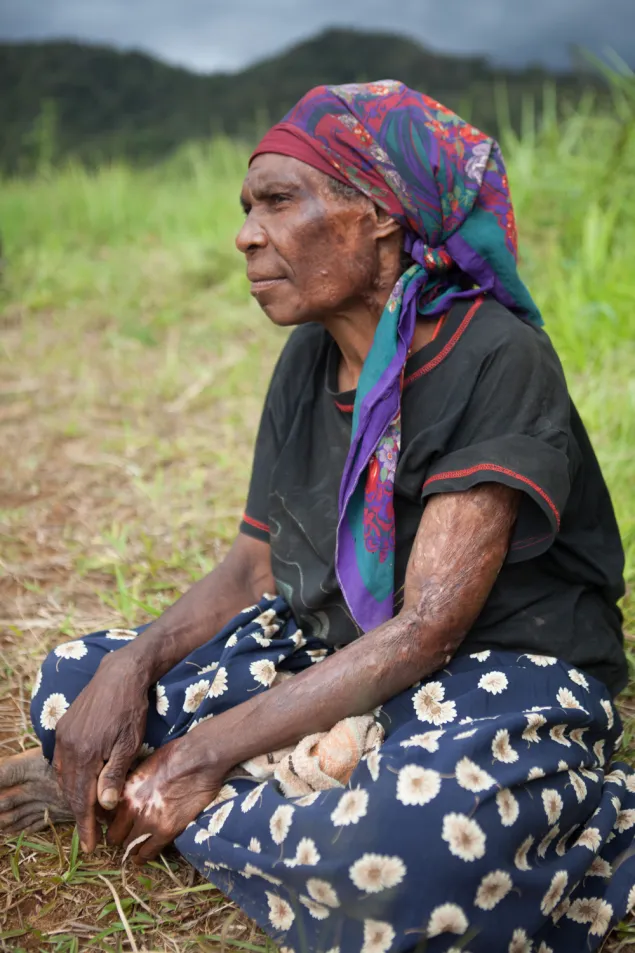
Helen Rami, an elder of the conflict-affected Wambia clan in Southern Highlands Province, suffered severe burns after the house in which she was sheltering was hit by a grenade during a tribal fight in 2013. Helen spent more than a year in hospital undergoing treatment for her injuries and to this day continues to experience intense physical pain. “I woke up and felt a strange, heavy feeling in the house. I looked outside: I saw lightning and darkness everywhere. We did not know that we were surrounded by our enemies. I told everyone: ‘Our enemies are here! Wake up! Wake up!’ They started burning down the house. It was hard for us to escape and a lot of people died. I tried to shelter underneath a blanket but it also caught fire and burnt so much of my skin. I prayed to God to help me. I said, ‘God, my life is yours.’ He answered my prayers because somehow I escaped. I don’t remember what happened after that. I did not think of whether I was dead or alive. My life was already gone.”
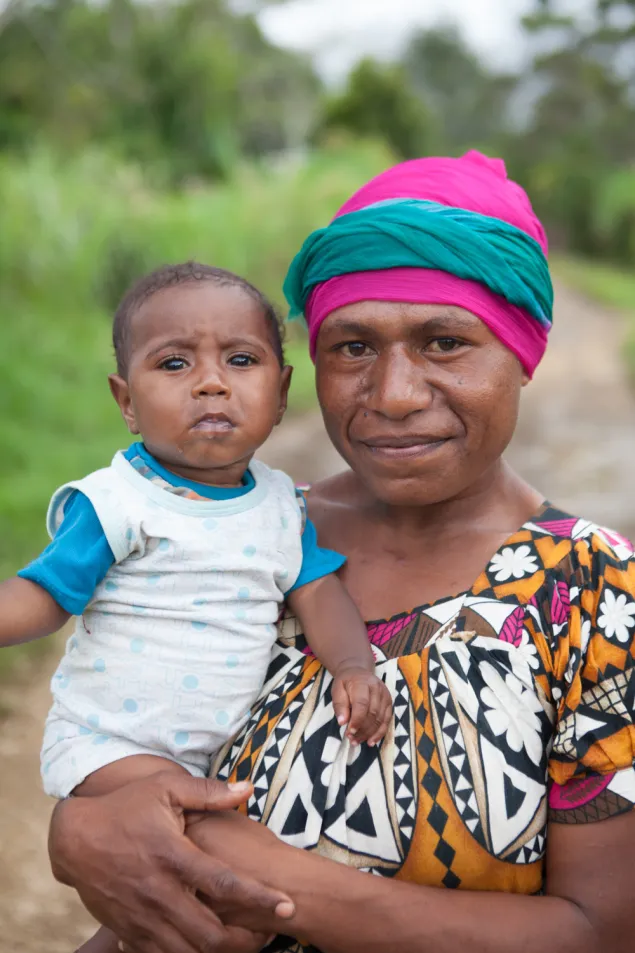
Riarepa community member, Eggie John, with her youngest child, in Southern Highlands Province. Since 2013, her tribe has sheltered hundreds of displaced people from the neighbouring Wambia clan. During a conflict, a house sheltering hundreds of community members was reportedly hit by a grenade, killing dozens. "My husband’s family is from Ragu, where the bomb went off. So we went to see what happened. Our community told us not to go, but we insisted. People were shouting and crying. There were bullets flying everywhere. A toddler from the Wambia tribe was crawling in the grass. We carried her to safety. We later found out that her mother had died in the grenade attack, so we adopted her and are now raising her. She has three siblings who also escaped. They now live with their father in Mt Hagen. When they visit me, they call me mother. As long as they call me mother, I will be a mother to them. I don’t want them to have to think about what happened to their tribe.”
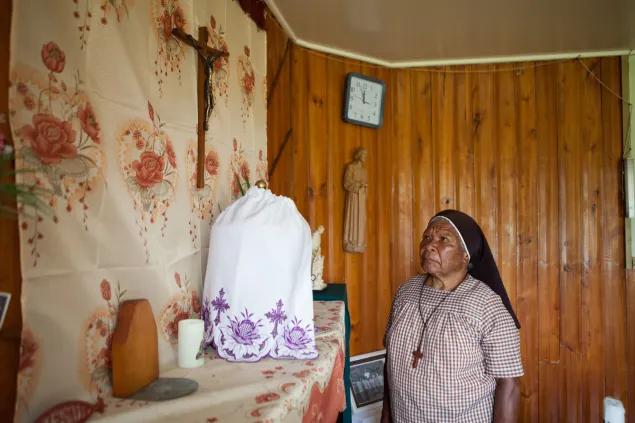
Sister Patricia Kuame, from the Franciscan Sisters of Mary, at a chapel in Southern Highlands Province. Sister Patricia and her fellow Catholic nuns use their position to encourage communities to avoid fighting and to prevent the use of sexual violence as a weapon of war. “I’ve heard many stories of women being raped during fighting. They sometimes cross the boundary into enemy land, to collect firewood or mushrooms, and that’s when they are vulnerable. Men rape women during tribal fights because they want to release their anger. Women are the backbone of men, so that’s why enemies want to destroy the women. We are trying to prevent this sexual violence through word of mouth.”
Home to some of the remotest communities in the world, the Papua New Guinea Highlands is a region of breathtaking, untouched beauty. However, these spectacular hills and valleys also harbor a disturbing reality: across the Highlands, tribal communities are at war. Vicious conflicts – over land, resources and other grievances – lead to thousands of displacements each year and rob families of their lives and livelihoods.
In Papua New Guinea's modern-day conflicts, no-one is spared from the fight – anyone or anything is a target – and tragically this includes women and children. Here, people caught up in these tribal disputes, share their stories, illustrating the serious, ongoing humanitarian impact of Papua New Guinea's chronic tribal wars.

